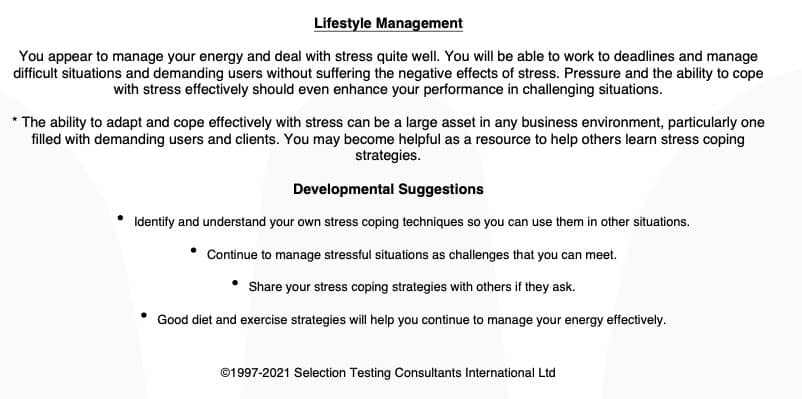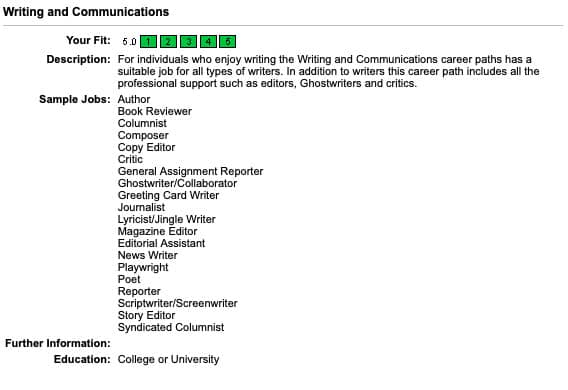It’s April 2021. A year ago, many of us were settling into the fact that this whole lockdown situation may last more than a week or two, as some of us optimistically anticipated. And if you were one of the 13% who found themselves without a job last spring, you know how difficult it is to be without work, especially amidst a global pandemic, when work is more difficult to come by than ever before.
And for a while, we collectively seemed to be keeping our spirits high—baking sourdoughs, learning a new craft, pushing ourselves in our couch-to-5ks—job loss was perhaps more of a challenge than our new hobbies proved to support.
In fact, studies have shown that job loss and grieving the stressors of being unemployed can lead to depression; if you’re feeling unusually down about your being let go, know that your feelings are completely valid.
So the question remains, where do you go after losing your job, and how do you cope with being rejected over and over again? What is there to do about job loss, especially in the midst of a pandemic?
“Thank you for your interest…”
I’m sure at one point or another you’ve applied for a job you knew you would be perfect for, and then got the ever surprising and disappointing rejection email(s):
Thank you for your interest… We regret to inform you… While your application was impressive, we decided to move forward with candidates who…
You may not be surprised then, if I told you that over 46% of candidates have waited for up to two weeks for a response following a job application, and 52% never received a response at all.
As with all rejections, these emails can be discouraging, especially after receiving time and time again with as many applications as one may make these days.
This repeated rejection from application after application can lead to “rejection fatigue” that can be detrimental to your mental health and can lead to career confusion, among many other feelings of uncertainty.
While rejection in life is inevitable, you can help combat rejection letter fatigue and prevent it from slowing you down in your career hunt by trying some of the following:
1. Focusing on quality over quantity. Make sure you’re only applying to jobs that you think really do fit your experience and your qualifications. You can also improve your chances of being selected for a position by tailoring your cover letters to each job position. Yes, it’s time consuming, but it’s worth it.
2. Looking for positions in new spots
This can be as simple as looking at a website that’s specific to your industry, which you can find often by searching on websites dedicated to job postings in your field. For example, if you want a job in a creative field in Ontario, there’s WorkInCulture.
3. Try visiting an employment office
A great asset I didn’t realize I had access to was an employment office. Particularly between my years at university in my undergraduate degree, I struggled finding a full-time 9 to 5 job in the Toronto area, because so many students are in the same boat at the same time.
Search for a highly rated and local employment office. You never know what kind of jobs they may be able to find for you.
Along with job loss and rejection after rejection leading to feelings of uncertainty about career paths, career confusion is itself a common occurrence on its own. According to Kathy Caprino, career confusion most frequently occurs
· after graduating from post-secondary education
· after having a baby
· in mid-life.
While it is over-simplistic to say there is one single fix to all these problems, which often is not solely on the job seeker (see: global pandemics, economic recessions, etc.), there are tools that you can use to slowly but surely get your feet back on solid ground.
1. Take a career fit assessment
One of the greatest assets you can have these days is a career assessment. Oftentimes, these assessments are offered to students, or these can be used in recruitment agencies or at the end of a hiring cycle, and cost the school, recruitment agency or organization up to $100 per assessment.
Packfinder, Workwolf’s exclusive career fit assessment is completely free for all users. All you need to do is create an account (which is also free) and answer the questions honestly. It takes under 30 minutes and gives you your best suited positions ranked on a scale from 1-5.
Take it from me—mine predicted my current job as one of my top positions!
2. Showcase your results on your social networking pages
If you’ve been job hunting for any time, you may already know that saying you have strengths in a soft skill is one thing, and showing them is another. In fact, 76% of companies with 100 employees or more rely on career assessments and other diagnostic tools to make critical hiring decisions.

Packfinder results are downloadable in PDF format and are sharable to showcase to employers the full report behind your soft-skill claims. Backed by the Self Management Group, Workwolf’s Packfinder assessment is thorough and offers many highlights of your results in terms of your strengths, and what fields of work you are more likely to thrive in based on those results.
You can showcase these results by sharing them or featuring them on your online portfolio page or on networking platforms, like LinkedIn.
3. Leverage your strengths and tackle your developmental suggestions
Equally as important as it is to recognize and showcase your strengths—hopefully, this is what you’re most passionate about, as well, or something that you enjoy doing—is working on your weaknesses or personal and professional development.
In fact, even the most “successful”, brilliant minds of our generation are constantly working on their personal and professional development. There truly is always room for improvement and working on expanding your professional capabilities is not only good for your resume but further your adaptability, as skills will always have some aspects that can be transferred from one context to another.
Your Packfinder assessment results will give you developmental skills to work on that are specific to your personality and tendencies in the workplace, so these can be a great starting point to utilize.

With this said, as Caprino states, these challenges are not ones that you have to or even should approach on your own. Try speaking with a peer or a trusted friend who seems to have a handle on their career, or even an approach on how they tackled their own career challenges.
Talk to a parent, a mentor, a supervisor, or even a therapist or councilor—someone you truly trust and know will really listen to you—and express what difficulties you’re experiencing. They may have resources first-hand or may be able to help you find the resources you need.
To take your free Packfinder career fit assessment, sign up here and get started.
Conclusion
If you’re among the 2 million Canadians who lost their job in April 2020, or were planning on starting your career following your spring graduation, you may be experiencing the world-wide phenomenon of job seeking fatigue that stems from job loss, rejection emails from applications, and career confusion. While there are many factors in getting your feet back on solid land, a great asset to your job search and relieving any career confusion can be settled with the guidance offered by thorough career fit assessments, like Packfinder, a free assessment courtesy of Workwolf.






